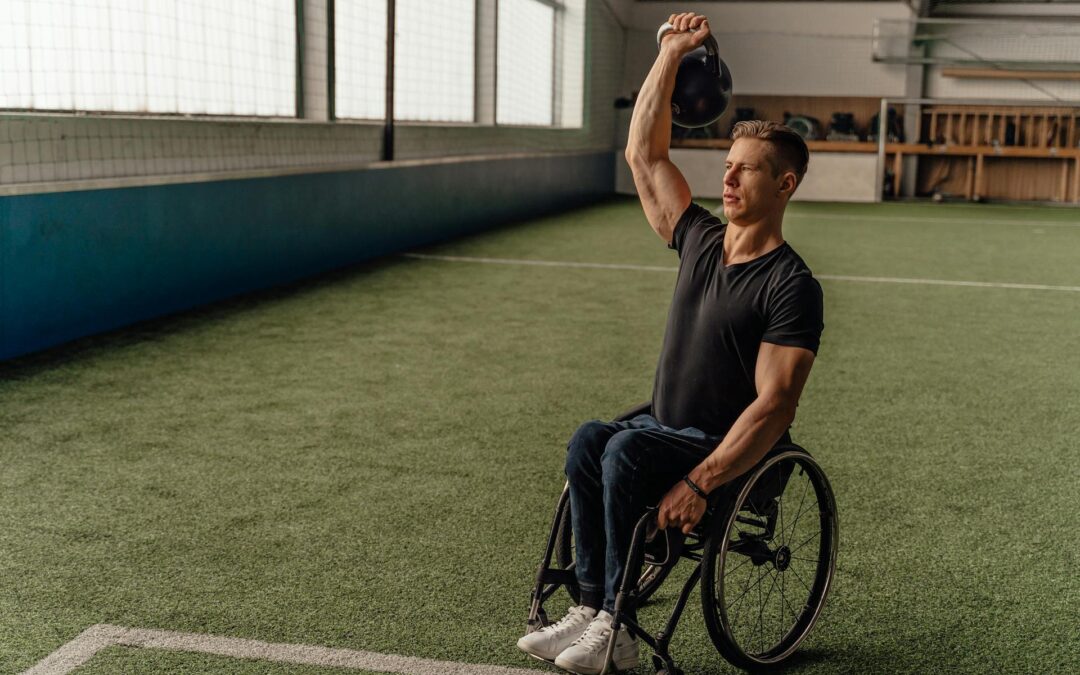Managing health conditions through exercise is essential for improving quality of life, particularly for people with disabilities. If you’re living with a chronic health issue or disability, exercise physiology offers a tailored approach that can significantly improve your physical well-being and independence. In this article, we will explore how exercise physiology through the NDIS (National Disability Insurance Scheme) can benefit people living on Sydney’s Northern Beaches. We will also cover the role of NDIS exercise physiologists and how tailored exercise programs can help you achieve your health and mobility goals.
Article Outline:
- What is NDIS Exercise Physiology?
- How Does NDIS Funding Support Exercise Physiology Services?
- Benefits of NDIS Exercise Physiology for People with Disabilities
- Exercise Physiologists: Who Are They and What Do They Do?
- NDIS Registered Exercise Physiologists on Sydney’s Northern Beaches
- What Types of Exercise Are Included in NDIS Exercise Physiology?
- How NDIS Exercise Physiology Improves Health and Wellbeing
- Tailored Exercise Programs for NDIS Participants
- Mobile NDIS Exercise Physiologists: Convenience for Northern Beaches Residents
- How to Access NDIS Exercise Physiology Services
1. What is NDIS Exercise Physiology?
Exercise physiology refers to the study and application of physical activity and exercise to improve health outcomes, particularly for individuals with chronic conditions, disabilities, or injuries. When delivered through the NDIS, exercise physiology provides a way for people living with disabilities to engage in exercise programs specifically designed to meet their needs.
NDIS exercise physiology focuses on improving functional ability, mobility, and independence. It can help individuals with a range of conditions, from neurological issues like stroke and multiple sclerosis to musculoskeletal disorders and chronic health conditions. NDIS funding makes it possible for eligible participants to access these services through registered providers.
2. How Does NDIS Funding Support Exercise Physiology Services?
NDIS funding is allocated to support participants in achieving their goals, and exercise physiology is one of the many allied health services covered under this funding. NDIS participants can access funding for exercise physiology services under two main categories: capacity building funding and core support funding.
- Capacity building funding is aimed at helping participants develop skills and capacity for greater independence. Exercise physiology services fall under this category as they enable individuals to increase strength, mobility, and overall functionality.
- Core support funding covers essential needs and daily living activities, such as personal care and transport, but also includes health and fitness programs that improve daily functioning.
3. Benefits of NDIS Exercise Physiology for People with Disabilities
Exercise physiology is not just about fitness; it’s about improving a person’s overall well-being. For NDIS participants, the benefits of exercise physiology can be transformative, improving everything from strength and mobility to mental health. Some key benefits include:
- Enhanced Mobility: Regular exercise helps to increase flexibility and strength, which improves the ability to move around and perform daily activities.
- Increased Independence: As physical capacity improves, participants are often able to complete more activities without assistance, enhancing overall independence.
- Improved Mental Health: Exercise is proven to boost mood, reduce anxiety, and combat depression, which is particularly important for people with disabilities.
- Reduction in Pain: Many individuals living with chronic pain or neurological conditions benefit from targeted exercises that help manage and reduce discomfort.
4. Exercise Physiologists: Who Are They and What Do They Do?
Exercise physiologists are highly trained professionals who specialize in the application of exercise to improve health outcomes. They hold a degree in exercise physiology or a related field and are trained to assess an individual’s physical capabilities and create personalized exercise programs.
An exercise physiologist works with NDIS participants to design and deliver safe, effective, and tailored exercise interventions. They take into account each person’s medical history, functional ability, and specific goals. Whether it’s improving strength after surgery or managing symptoms of a neurological condition, exercise physiologists design programs that are safe and effective.

5. NDIS Registered Exercise Physiologists on Sydney’s Northern Beaches
In the Northern Beaches area of Sydney, there are several NDIS registered exercise physiologists who specialize in creating tailored exercise programs for NDIS participants. These professionals are trained to support people living with a range of conditions, from neurological and musculoskeletal disorders to cardiovascular diseases and obesity.
Exercise physiologists in this region are experienced in working with NDIS participants, providing the right guidance to help them achieve their exercise goals. NDIS funding helps cover the cost of these services, ensuring that participants can access expert care within their local community.
6. What Types of Exercise Are Included in NDIS Exercise Physiology?
NDIS exercise physiologists design exercise programs that incorporate a range of activities aimed at improving various aspects of health. Some common types of exercise included in NDIS programs are:
- Aerobic Exercise: These exercises, such as walking, swimming, and cycling, improve cardiovascular health and stamina.
- Resistance Training: Weightlifting and other forms of strength training help build muscle, improve bone density, and increase mobility.
- Flexibility and Balance: Stretching and balance exercises reduce the risk of falls and injuries, which is especially beneficial for older adults and people with neurological conditions.
- Functional Training: This type of exercise focuses on real-life movements, helping individuals improve their ability to perform daily tasks with ease and safety.
7. How NDIS Exercise Physiology Improves Health and Wellbeing
NDIS exercise physiology is crucial for improving both physical and mental health. Regular physical activity improves circulation, strengthens muscles, and increases flexibility, all of which contribute to better functional ability. Moreover, exercise can reduce stress and anxiety, improve sleep, and enhance overall mental health.
Exercise physiology services also target specific health conditions, such as obesity, diabetes, cardiovascular disease, and neurological disorders. By incorporating exercises that are both safe and effective, exercise physiologists can help improve health outcomes for people living with chronic conditions.
8. Tailored Exercise Programs for NDIS Participants
A key feature of NDIS exercise physiology is the personalization of exercise programs. Tailored exercise programs are designed based on an individual’s health history, goals, and current fitness level. Whether the goal is to increase strength, improve balance, or manage a chronic condition, exercise physiologists ensure that each participant has an exercise program that suits their unique needs.
For instance, a person living with type 2 diabetes may benefit from an exercise program that helps regulate blood glucose levels, while someone with a neurological condition may require exercises that improve coordination and movement. The ability to tailor each program ensures that NDIS participants can achieve their health goals in the most effective and safe way possible.
9. Mobile NDIS Exercise Physiologists: Convenience for Northern Beaches Residents
For residents of Sydney’s Northern Beaches, mobile NDIS exercise physiologists offer the convenience of receiving services in the comfort of their own home. This eliminates the need to travel to a clinic, which can be particularly beneficial for people with mobility issues or those who find it difficult to leave the house.
Mobile exercise physiology is a flexible and convenient option, allowing NDIS participants to receive personalized care wherever they feel most comfortable. It also ensures that the exercise program is closely monitored, and adjustments can be made as needed to ensure progress.
10. How to Access NDIS Exercise Physiology Services
To access NDIS exercise physiology services, participants must first be registered with the NDIS and receive funding for allied health services. Once registered, participants can choose from a list of NDIS registered exercise physiologists who are qualified to provide tailored exercise programs.
For exercise physiologists who are not NDIS-registered, they will still be able to provide services to plan-managed or self-managed participants. It is essential that their services meet the NDIS standards and that they provide proper documentation for the participants to claim the funding.
Key Takeaways:
- NDIS exercise physiology can help individuals with disabilities improve mobility, strength, and overall quality of life.
- Exercise physiologists design tailored exercise programs based on each participant’s health condition and personal goals.
- NDIS funding supports exercise physiology services through capacity building and core support categories.
- Mobile NDIS exercise physiologists offer flexibility for residents of the Northern Beaches.
- Regular exercise is essential for improving mental and physical health, particularly for people living with chronic health conditions.
Exercise physiology services can make a significant difference in the lives of NDIS participants. Whether you’re looking to improve physical health, manage a disability, or enhance your overall well-being, working with an accredited exercise physiologist can help you achieve your goals.
